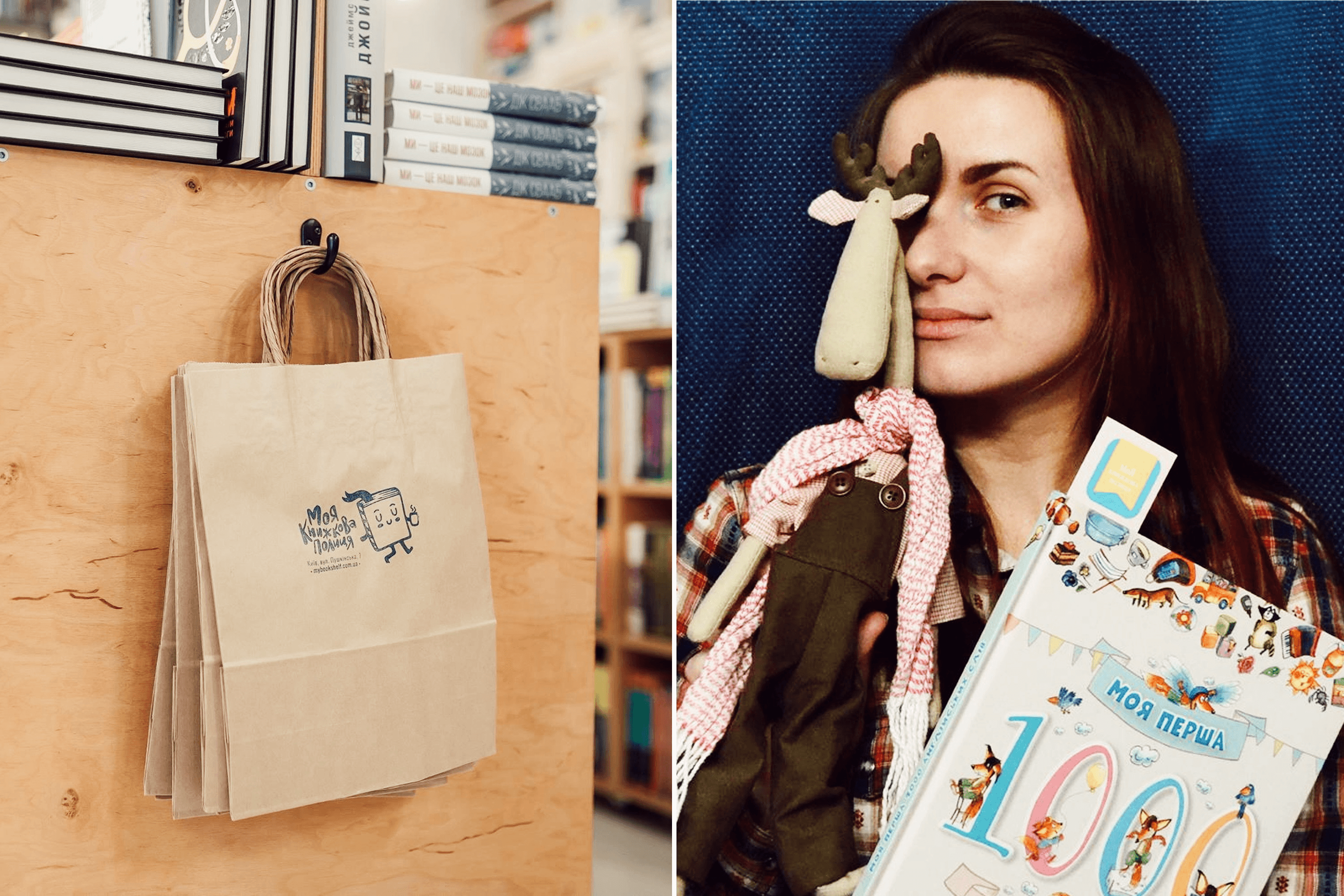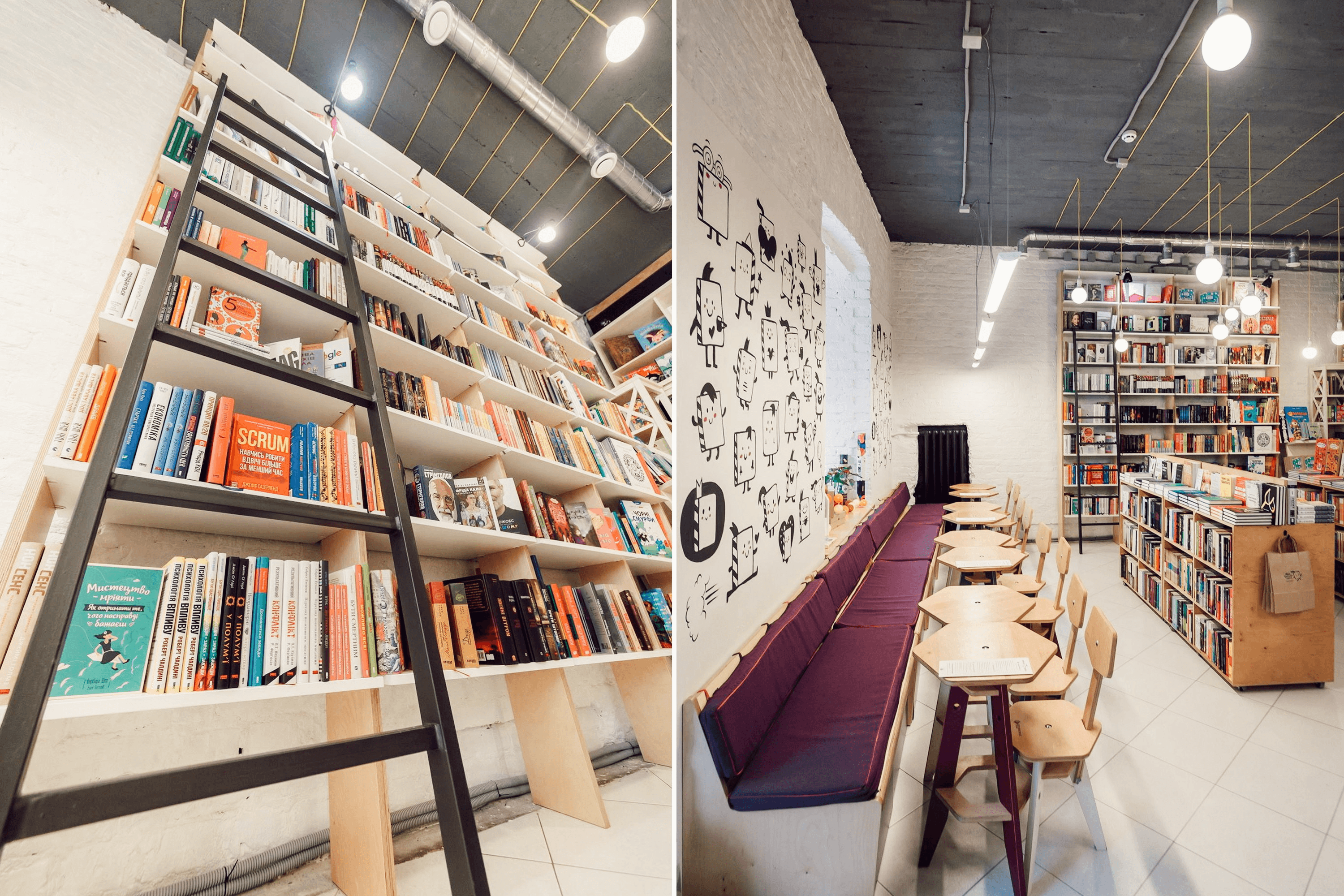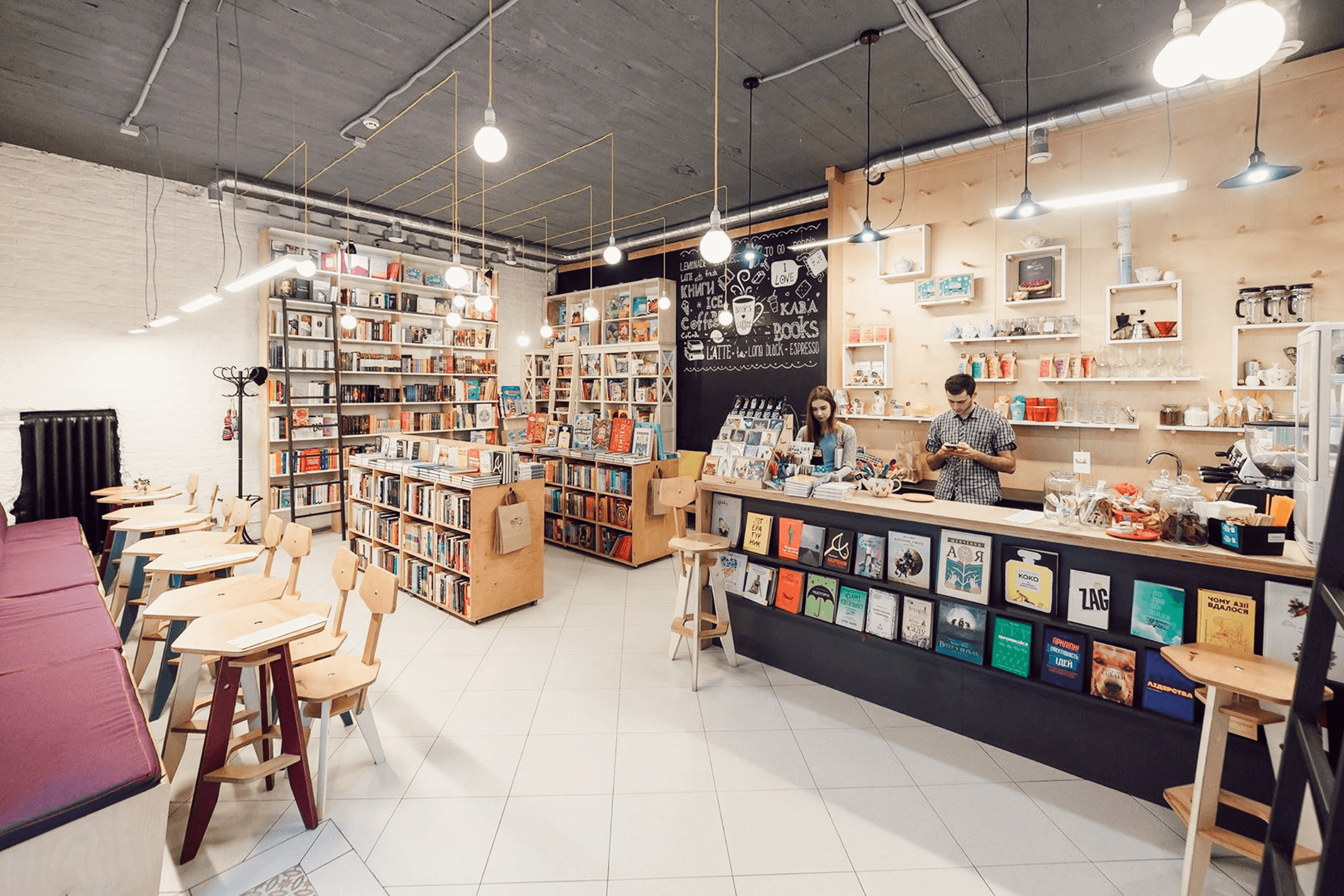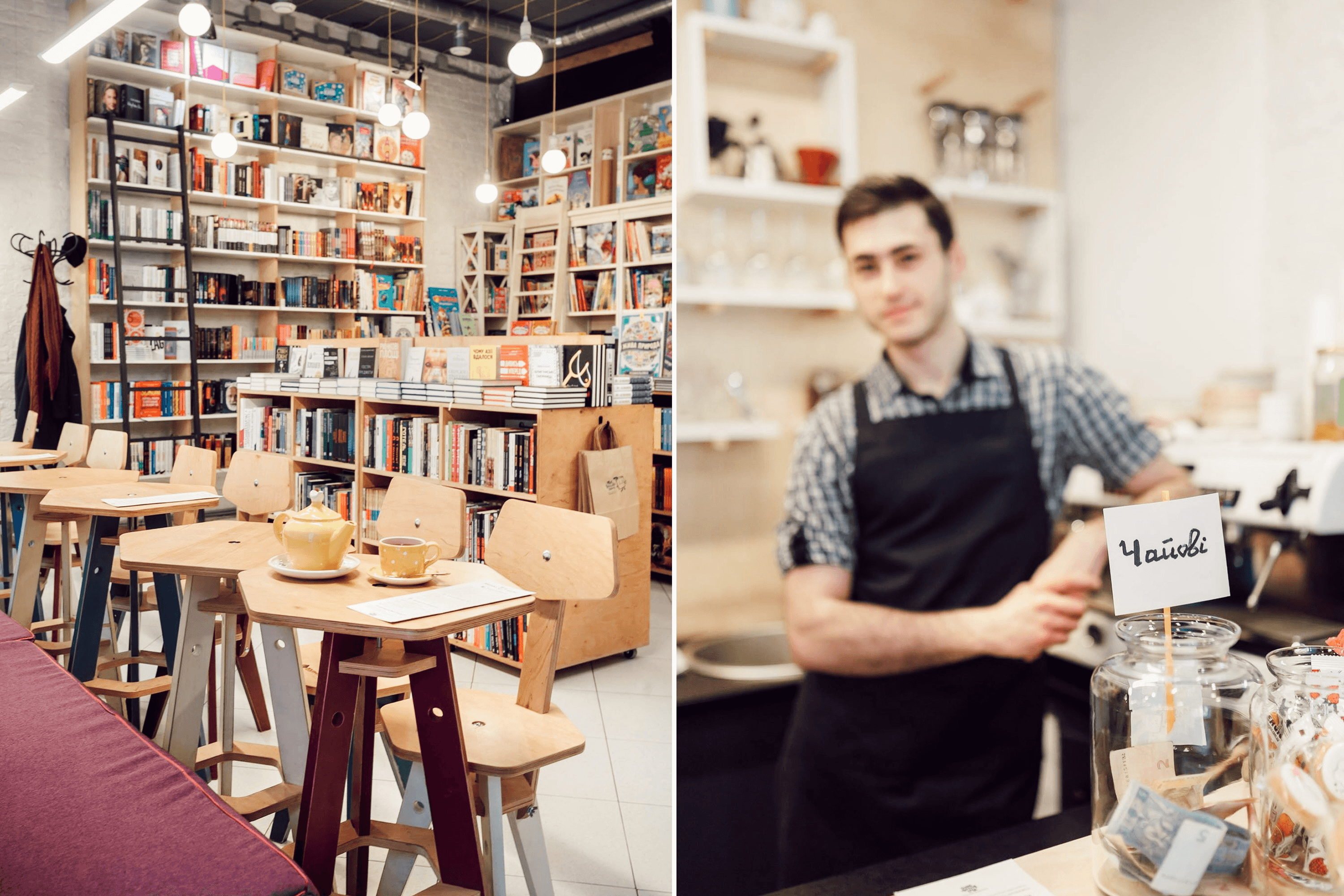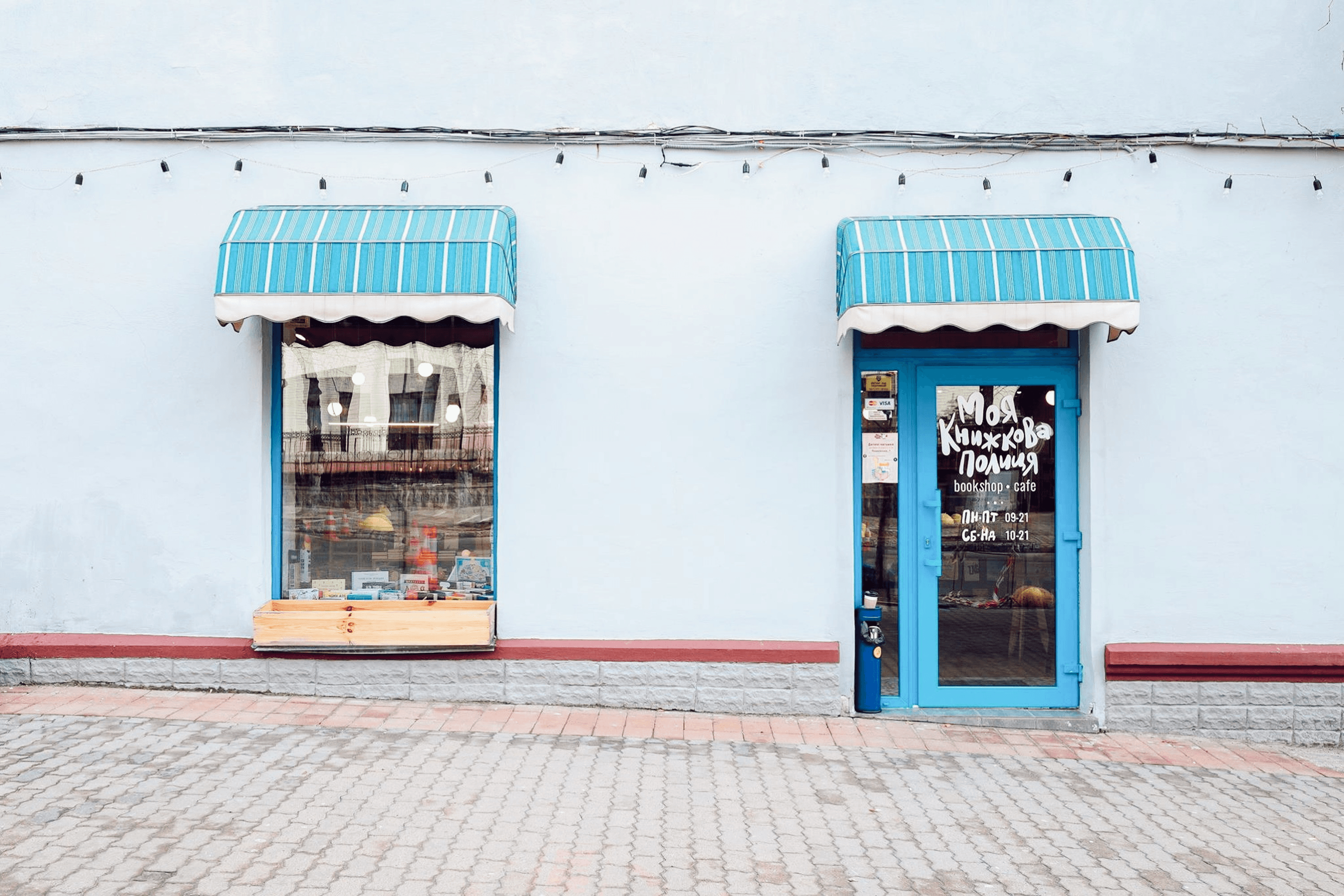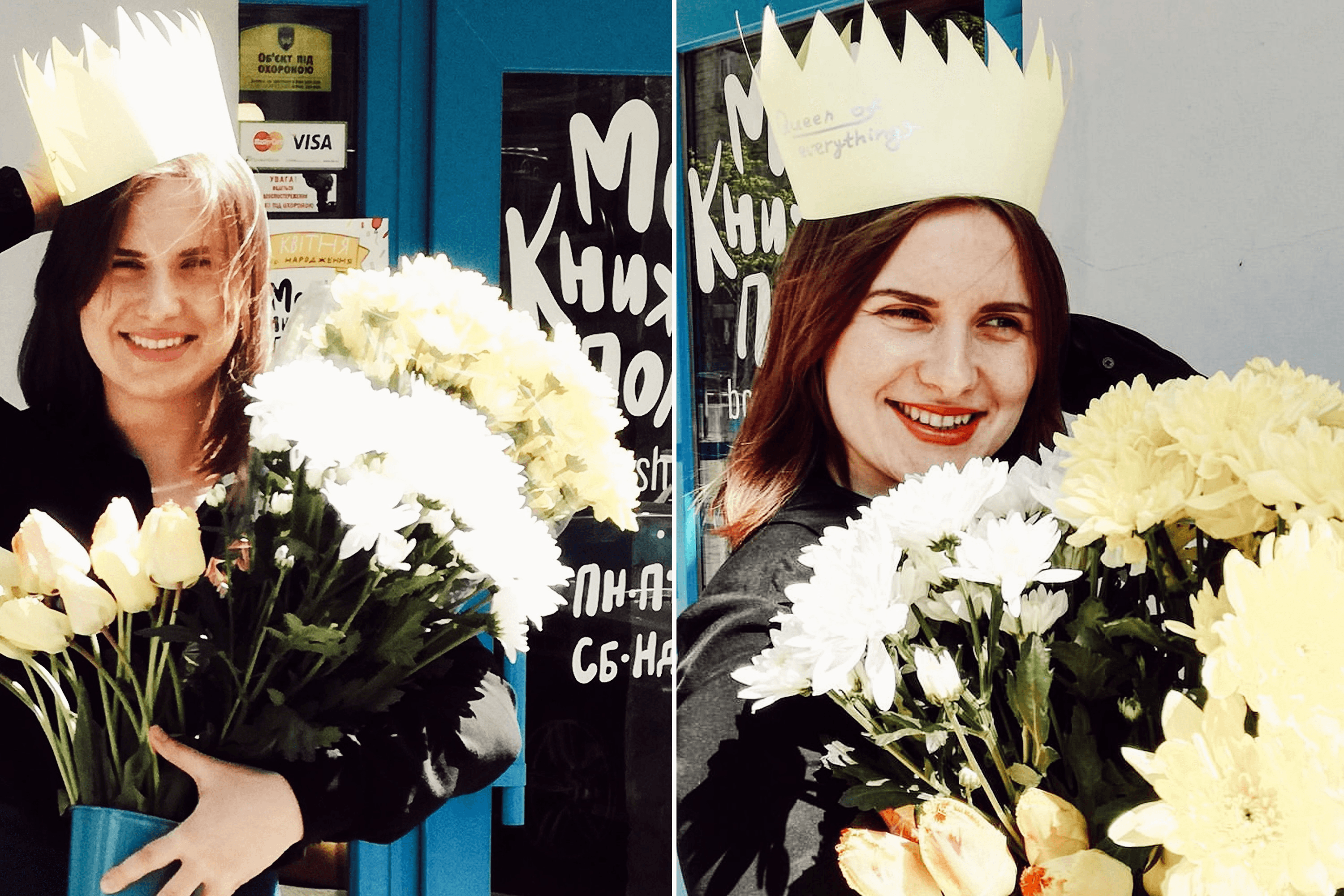Natalia Mospan is a lawyer, economist, entrepreneur, publisher, and mother of three. Her Kyiv-based bookstore-café chain, My Bookshelf, made a quiet but powerful statement by operating for over a decade without selling a single Russian-language book. Natalia created more than just retail spaces; her stores became cultural hubs, drawing over 20,000 monthly visitors. In 2018, she launched a publishing house under the same name, publishing more than 190 books since.
Following the outbreak of Russia’s full-scale invasion, Natalia and her family relocated to France. In Carcassonne, she launched her publishing house for children’s literature, Le Petit Canard («The Little Duck»). Its first titles have already landed on the shelves of French bookstores. Natalia aims to create unique children’s stories infused with Ukrainian characters and promote international cultural exchange between Ukraine and France. Her story is below.
On May 15, 2014, Ukraine celebrated Vyshyvanka Day, and the streets in central Kyiv were filled with people wearing traditional embroidered clothing. Twenty-eight-year-old lawyer Natalia Mospan was rushing to the High Administrative Court for a seemingly minor case: a dispute over a sole proprietor’s tax status revocation. Natalia wore a vyshyvanka that her mother had gifted to her. As the company’s legal representative, she had all the necessary documents, evidence, and arguments and felt confident in her position. But there was one issue: her opponent was the state itself. She wasn’t seen as a legal expert in the courtroom but as a «naive woman in a charming national costume.»
«They didn’t even try to hide that they weren’t listening to me. ‘What a lovely little vyshyvanka you have, ’ one judge smirked at another.»
After a brief discussion, the judges retired to the deliberation room. Natalia stood quietly outside the chamber doors, and then she heard them chatting about a prosecutor’s daughter’s party: who was coming, what they’d drink, but not a word about the case or the evidence. She recalled her 11 years of work — a law degree, hours spent preparing cases, and countless hearings. And in that moment, it hit her—nothing had changed.
«I realized that the system hadn’t budged even after the revolution. And through our silence, we were letting these people stay in charge.» Natalia remembers.
Natalia lost the case. She stepped outside, crossed the street, and sat on a bench in a courtyard on what was then called Moskovska Street in the Pechersk district. And she cried. Sitting outside the courtroom, face to face with injustice, Natalia understood one thing: there’s no use waiting for change, you have to create it yourself. That day, she made a step towards change, setting a new goal to promote Ukrainian literature and help the language thrive.
1
Natalia grew up in a family of lawyers—her father was a defence attorney, and her mother taught law in school. They lived in the bustling industrial city of Dnipro, which is known for its industrial enterprises and fast-paced business environment. From the age of 16, Natalia was curious about how laws work. She wanted to understand why some companies rise while others fold and how legislation influences business and society. She enrolled in the Yaroslav Mudryi National Law University on a part-time basis, which allowed her to work and study at the same time. By 17, with her father’s help, Natalia landed her first job as legal counsel at a joint-stock company. «It was a crash course in real life, ” she says. Drafting claims, studying case law, attending court hearings while constantly having to prove herself because of her young age.
«You walk into a room full of people shaped by darker, colder times, and you immediately feel the doubt in the air—who are you for them to listen to? But I learned that respect isn’t given, it’s earned. Through knowledge, resilience, and a willingness to work harder than everyone else.»
That same year, while in Yevpatoria, Natalia met Oleksandr from Kyiv, who would later become her husband. Despite the distance, their relationship progressed quickly. «We didn’t mind those long bus rides to see each other, ” Natalia laughs now. The challenges seemed minor, and their love gave them the strength to wait.
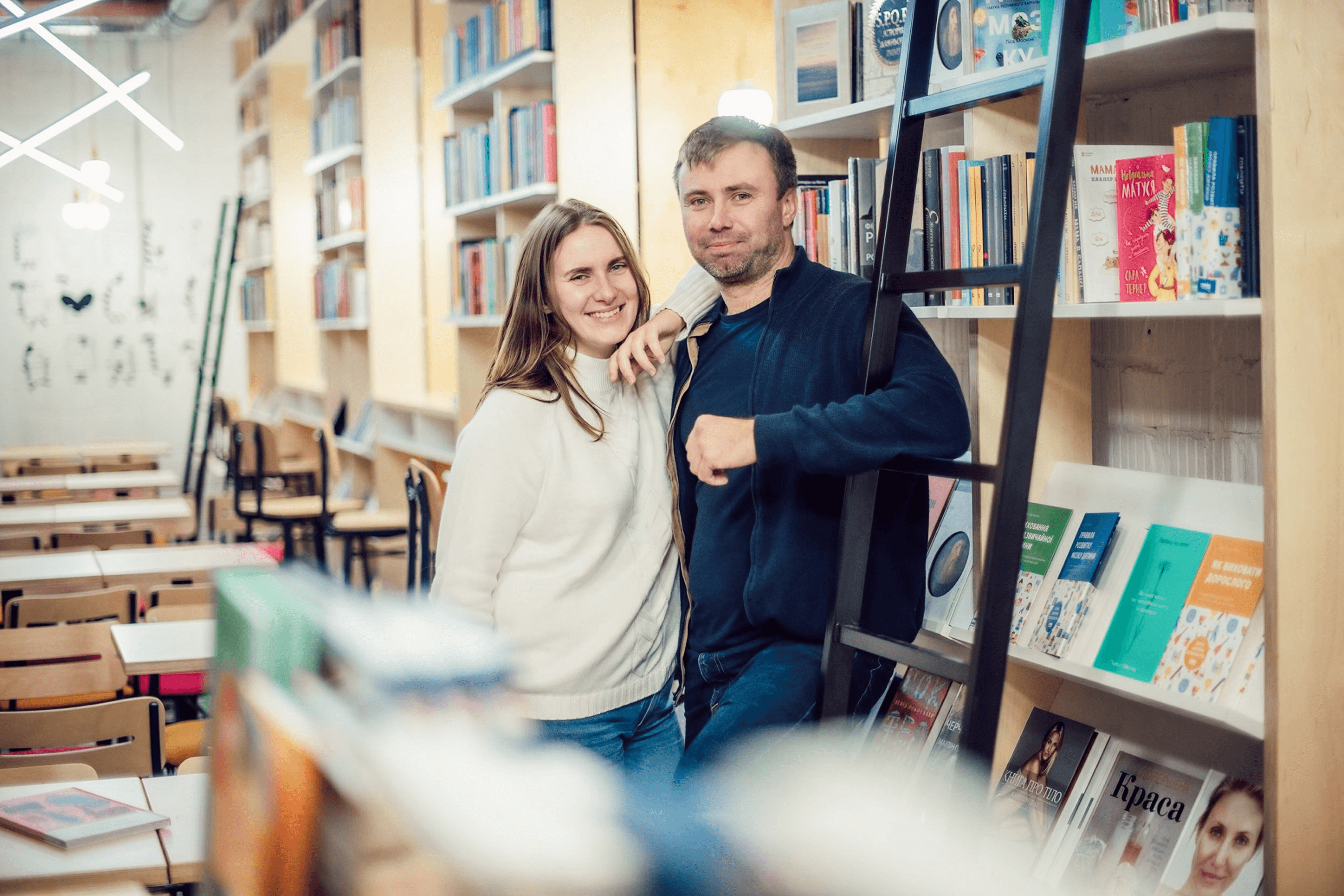
For the next three years, Natalia worked hard. In addition to her legal career, she also completed a course in accounting. Oleksandr, meanwhile, was quietly preparing for their life together, which came as a surprise to Natalia. «I had no idea Sasha was building a house in the Kharkivskyi district of Kyiv, ” she says. I used to pass by and think what a lovely area it was, with all the greenery and lakes. Only later did I realise this would become our future home.»
Natalia moved to Kyiv to be with Oleksandr in 2006, and that same year, they got married. Two years later, their daughter Yaryna was born. Moving to the capital opened up new opportunities for Natalia. Oleksandr, along with his brother and father, worked in architecture and construction. Natalia began exploring the legal side of the industry. She registered her husband’s firm, took on legal support for his projects, and eventually took on the company’s accounting too.
The job required not only legal knowledge but also a deep understanding of financial processes. Natalia realized she lacked formal training in economics and accounting. This led her to pursue a second university degree. At 26, she earned her second degree in Accounting and Auditing from the Kyiv National Economic University. That same year, she had their second daughter, Ustyna.
Motherhood didn’t slow her down. After her first child, she began designing jewellery for herself and her friends, occasionally selling pieces at local craft markets. After her second child, she learned how to sew professionally. When the children were asleep, she would spend hours at the sewing machine, experimenting with cuts and patterns, making clothes for herself, her kids, and friends, and seeking natural fabrics with unique prints. Ms. Mospan says that her hunger for creativity and love for life only doubled after Ustyna was born.
2
The Revolution of Dignity in 2014 was a turning point in the country’s history and Natalia and Oleksandr’s lives, too. Both passionately supported the change in government and pushed for legal changes together with the protesters on Maidan. Natalia says it was during this time that she realized: this was no time to stand by and observe—real transformation demanded action. The revolution strengthened her belief that it was time to invest in the country’s future. And that future, she believed, begins with education.
Books have always played an essential role in Natalia’s life. From an early age, she believed in the power of words. For her, books were more than just stories—they were a way to connect with others, make sense of the world, and preserve cultural heritage. Reading aloud became a cherished evening ritual in her household, strengthening the bonds within her family. She bought every Ukrainian-language children’s book she could find, but really great ones were hard to come by. The effects of Russification were still felt in everyday life, and the chance of raising children in a fully Ukrainian-speaking environment was steadily slipping away. For Natalia, it wasn’t just about literature, it was about identity.

After the Revolution, Mospan created a Facebook page where she shared her reviews of children’s books. It was a time when Ukrainian society was changing, and culture had once again become a key part of people’s identity. Her review posts quickly became popular; they were honest, emotional, filled with deep observations and her own experiences as a mother. She didn’t just evaluate books; she told stories—how certain titles affected her children, what they discovered in them, and the questions they asked after reading.
It was during this time that Natalia began thinking on a larger scale. She saw a critical lack of quality Ukrainian children’s books. And if no one took action, future generations might grow up with no cultural roots to hold onto.
3
The situation in court became a catalyst for Natalia. She understood that promoting Ukrainian-language books in a market flooded with Russian publications would not be easy. But she also knew it had to be done.
Natalia started with online sales. She launched an online store she named My Bookshelf, which initially offered just 100 titles but soon grew into the thousands. In 2015, she opened her first small book corner inside Kyiv’s «Tsiferblat» creative space, located in a courtyard on Volodymyrska Street in Kyiv’s historic centre. And in 2016, she opened her first full-scale bookstore café on Yevhena Chykalenka Street (formerly Pushkinska). Launching the space cost over 600,000 UAH, funded by profits from Tsiferblat and the online store.
At first, the bookstore’s shelves looked sparse—there simply weren’t enough quality Ukrainian-language books on the market. To make the space feel fuller, the books were displayed facing forward rather than spine-out. However, within just a month, the store was already breaking even. Her favourite publishers were A-BA-BA-HA-LA-MA-HA, The Old Lion Publishing House, Nash Format, and Three Ants. Natalia handpicked her books not just for being in Ukrainian, but for their meaningful content, strong visual style, and the values they could instill to help shape a well-rounded individual.
In December 2017, Natalia opened her second location, a spacious bookstore in Kyiv’s Darnytskyi district, near the Pozniaky metro station. The project cost her 750,000 hryvnias, which she reinvested from the earnings of the bookstore on Chykalenka Street. To Natalia, creating a cultural hub in a residential neighbourhood mattered just as much as having one in the city centre.
Without involving investors or financial input from her husband, Natalia reinvested her profits into growing the business. In 2018, she launched her own publishing house, My Bookshelf (Moya Knyzhkova Polytsya), aiming to fill the noticeable gap in high-quality Ukrainian children’s books.
The first book, Stories About Microbes, for Whom You Are a Home, was released on April 18, just two weeks before the birth of her third child, son Taras. In the book, author Claire Imar playfully guides kids through the invisible world of microbes, showing how important hygiene and self-care are in our everyday lives. Thanks to pre-orders from bookstore customers, Natalia was able to publish the book, and the entire print run of 2,000 copies sold out immediately. Natalia personally presented the book at the Book Arsenal festival, heading there just days after giving birth.
Starting a publishing house was another bold move. «There was no market analysis or fancy research, ” Natalia reflects, „only a strong belief in the need for change.“ Within the first year, she released ten children’s books, including the Cool Math and Cool History of Ukraine series, which became especially popular among parents of school-aged children.

Mospan turned the second floor of one of her bookstores into the publishing house’s office, sharing the space with her husband’s architecture studio. The publishing operations were run through outsourcing: translators, proofreaders, and editors were hired on a project basis, with only a managing editor on payroll. Within a few years, the bookstore-café My Bookshelf became a true phenomenon. Notably, it never sold a single Russian-language title during its entire existence and was consistently packed with visitors.
In 2019, a new bookstore under the same name appeared on Rusanivska Embankment in Kyiv, becoming a cultural hub along the Dnipro River.
That same year, she rolled out a travelling bookstore project, delivering books to small towns and villages, helping bring literature to places where access was limited. The fourth My Bookshelf opened in Chernihiv — this time as a franchise purchased from Natalia Mospan. It was founded by people passionate about Ukrainian books who shared Mospan’s vision: that children’s literature should not only entertain, but also inspire language, culture, and identity from the earliest age.
4
Just before the full-scale war began, Natalia invested all her available funds into opening another My Bookshelf bookstore in Kyiv’s Respublika shopping mall, using up all her financial reserves for the launch. Then, on February 24, Russia brutally invaded Ukraine.
When the war broke out, Natalia and her family were at their countryside home. The first thing she did was transfer salaries and advances to her employees so they could get by in the early days. She donated the remaining food from the café to the local territorial defence.
Natalia was emotionally drained. The mere thought of her children potentially dying triggered a depressive state. That fear drove her to leave Ukraine. She chose France—a country she had always dreamed of visiting on a long holiday, though not under such heartbreaking circumstances. Her husband was legally allowed to travel with her, as they were raising three young children together.
The Mospans fled Ukraine in fear. Money was tight—her husband’s architectural contracts were on hold, while her bookstores and publishing house were not operational. The family spent a month and a half staying with friends in Croatia before heading to France, where they were granted temporary protection. Through an online listing, they found free accommodation in Villeneuve-lès-Montréal. After nine months, they moved 20 kilometres east to Carcassonne, where they still live to this day. They rent an apartment for about 1,000 euros per month. Finding a home was a challenge: despite laws protecting refugee families with children from eviction, landlords often favoured tenants with permanent employment contracts. After five temporary stays and more than ten rejections, the family finally found a home in Carcassonne, the lease was approved for three years thanks to a personal recommendation.
Throughout most of 2022, Natalia struggled with deep depression. Her business in Ukraine suffered the consequences of a full-scale war. The bookstores in Kyiv were completely closed in March and April 2022. During that time, she couldn’t pay her staff—there simply weren’t any funds. In Chernihiv, the franchise owners closed their store without even letting her know. She only found out once the shelves were bare and the space nearly emptied. At that point, reviving the location no longer made sense: there were no books, no team, and no energy left to rebuild.
In May ’22, Natalia’s bookstores slowly began to reopen, first in Pozniaky and later on Chykalenka Street. In the fall of the same year, she managed to bring her publishing house back to life, releasing two important books: «5 Ears of Grain» about the Holodomor and «The Girl Without a Name», a profound story about identity and childhood trauma.

For Natalia, saving her business was critically important, not only as her life’s work, but also as a way to support Ukrainian culture, language, and the team that had stood by her even before the war. While her family was living off savings, Natalia wrote a children’s story about a baguette titled Une baguette. It became her first literary project in France and was inspired by her observations of the French and their everyday life. Waiting in line at the bakery became more than just routine, it became an important part of her adaptation to this new life. Instead of pitching it to existing French publishers, Natalia took a chance and founded her own publishing house.
Mospan began researching how the publishing industry works in France. She looked into the details, such as how to get an ISBN, explored the legal structures of publishing companies, and was impressed by how straightforward it all was. «The moment I typed anything about publishing or book releases into Google, I’d land on an official government site with clear, step-by-step instructions and contact details, ” she says. This was a stark contrast to Ukraine, where businesses often struggle with bureaucracy and shifting regulations. In France, most of the registration happens online, with paperwork arriving later by post. Also, the French have a different approach to buying books—they often prefer physical bookstores. Even when they have direct links to online retailers, many are happy to wait, just for the chance to flip through a few titles and have a chat with the bookseller.
On September 1, 2023, Natalia officially registered her children’s publishing house, Le Petit Canard, which translates as «the little duckling.» The name symbolized her own journey through emigration and the search for belonging.
Her husband found a job in Toulouse, and the children were adjusting to their new schools in France. Natalia was particularly struck by how much value the French education system places on the arts. From early on, children are encouraged to sculpt, paint, and take part in therapeutic art sessions—activities that foster creativity, emotional awareness, and self-expression.
In March 2024, Natalia Mospan published Une baguette with an initial print run of 2,500 copies, investing €10,000 into the project. She genuinely believed the story would quickly find its readers and put a great deal of effort into promotion: launching ads and collaborating with bloggers. But despite all her efforts, most of the books remained in boxes in her garage.
In her attempts to find effective distribution channels, Natalia dove into market research, studying which companies distributed children’s books for competing French publishers and sending out thoughtful, personalized emails proposing collaboration. Still, not a single distributor was willing to take a chance on a new, unfamiliar title.
A sudden breakthrough came when the professional French publication Livres Hebdo approached Natalia with the initiative to share her publishing journey. Shortly after, the distributor Pollen contacted her and proposed a distribution contract for the book. Pollen is a distributor focused on children’s books. A distributor like this can organically integrate a new book into a well-established catalogue, where it can be noticed by the right readers.
As part of the deal, the distributor takes 10% of gross sales. Additionally, there’s the diffuseur, the go-between connecting the publisher with bookstores, who claims another 25 to 30%. In the end, from a 12-euro book, Natalia’s publishing house sees only about 4 euros per copy sold.

In addition to the distributor, Natalia also needed a diffuseur. In France, it is the diffuseur which represents the publisher in bookstores, negotiates with retailers, organizes marketing campaigns, and ensures the book’s visibility on the market. According to Mospan, the diffuseur is especially important for small and independent publishers without dedicated sales teams. That’s exactly what happened with Une baguette: as soon as she brought a diffuseur on board, her first 1,000 copies sold out.
Natalia Mospan is not expecting any profit from Le Petit Canard just yet. Breaking into a foreign market takes time. The foreign market is slow to accept new players, competition with local publishers is intense, and adapting Ukrainian books to European standards is, in her words, a long-term investment in the future. Still, Natalia’s French publishing house holds potential for future growth, as it fills a niche for Ukrainian-language literature that has not yet received much attention in the Western market. The books published under her brand may serve as a bridge between Ukrainian and European cultures, helping to build cultural bridges, bringing Ukrainian voices to a broader international audience.
In Ukraine, Natalia earned money; in France, she is investing. Using profits from her Ukrainian business, Mospan published three books, investing € 36,000 in registering her publishing venture, handling permits, editing, translating, printing, and showcasing her work at the Paris Book Festival.

Over her years in France, Natalia realized that the French aren’t all that different from Ukrainians. But two things, in her view, define French culture: first, mutual respect—even in a bad mood, the French don’t take their emotions out on others. Second, the absence of «unworthy» or «low-status» professions.
Before emigrating, Natalia’s French was limited to a handful of words and a few lines from «La Marseillaise.» Now, she is actively studying the language. The turning point came after a minor car accident involving her family when she struggled to explain the situation to police officers who didn’t speak English. French is also essential for managing her publishing business. Natalia began learning by reading children’s books, listening to music and translating lyrics— these became her main tools. Without taking formal courses, but through consistent practice, she can now confidently speak about both professional and everyday topics.
5
Natalia continues to run her business in Ukraine remotely, now operating solely in Kyiv. That income, along with family savings, still supports them. Her husband’s architecture business remains on hold.
«Over the past ten years, we’ve become a symbol of commitment to Ukraine, its culture, and its language, ” says Natalia.
Running two businesses in different countries is not easy. Early in 2025, My Bookshelf publishing house hit a major bump: the entire 2,000-copy print run of Detective Poop: The Mystery of the Lady in Purple had to be scrapped due to a technical error. The files were sent to print without final approval from the Japanese rights holder, which was a major breach of the licensing agreement. Even with years of publishing experience, the company faced such a major misfire. With reputational risks looming and the possibility of a legal dispute, the company made a firm decision: no excuses, no attempts to downplay the error—only a full retraction and responsible disposal of the books. This move became a marker of responsibility and respect for international partners. In turn, the Japanese side agreed to an expedited reprint so that Ukrainian readers would receive their copies without significant delays.

The setback didn’t affect demand. Even despite the crisis in the children’s book market, this title showed a remarkable result—half of the print run was pre-ordered before the official release. This confirms that while the children’s book market is still experiencing a downturn, it is beginning to recover. «A loss of trust is a serious challenge for any business, ” Natalia explains. „But owning your mistakes and being transparent builds even deeper loyalty. For us, it’s all about quality, honesty, and thinking long-term.“
Le Petit Canard is the French extension of Natalia’s Ukrainian publishing vision—a way to bring the voices of Ukrainian authors to French readers, with a focus on stories that reflect and celebrate Ukrainian culture. Today, she’s actively looking for investors to support and grow Le Petit Canard’s projects. She is also prepared to apply for government support in France to secure the publisher’s future.
The publishing house currently has five titles in its catalogue. As part of her agreement with the distributor, Natalia is committed to releasing at least four new books each year. Since January 2025, Le Petit Canard has brought in €6,362 in gross sales.

The publishing house is also focusing on growing its online sales, which opens up opportunities to expand beyond the French market and promote Ukrainian literature internationally, including on platforms like Amazon. This not only expands access for readers around the world but also keeps the books within reach for Ukrainians living abroad and anyone interested in Ukrainian culture.

